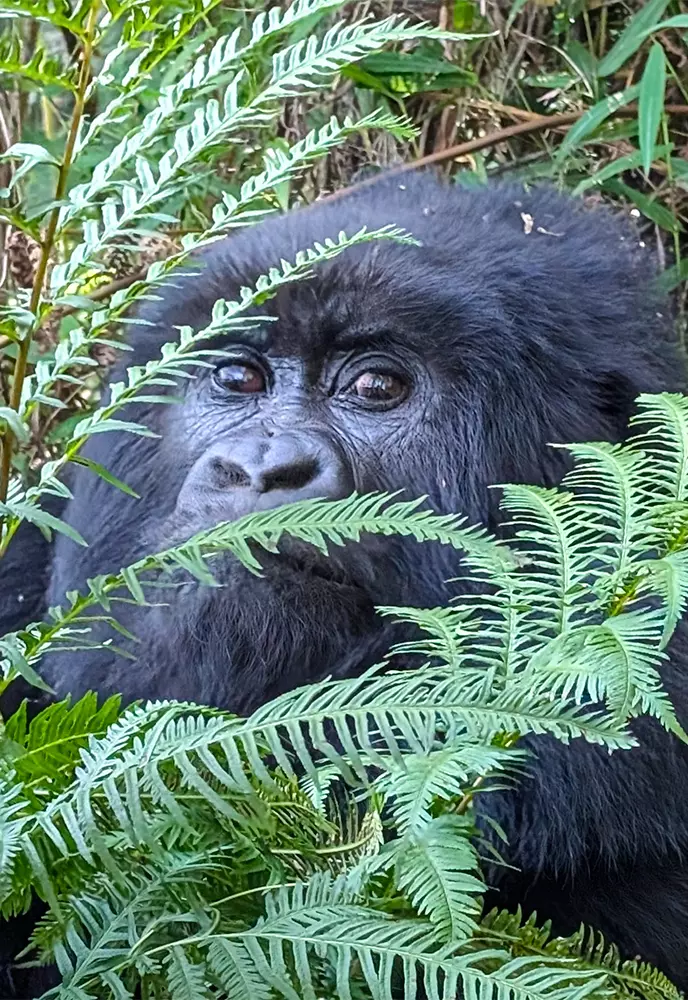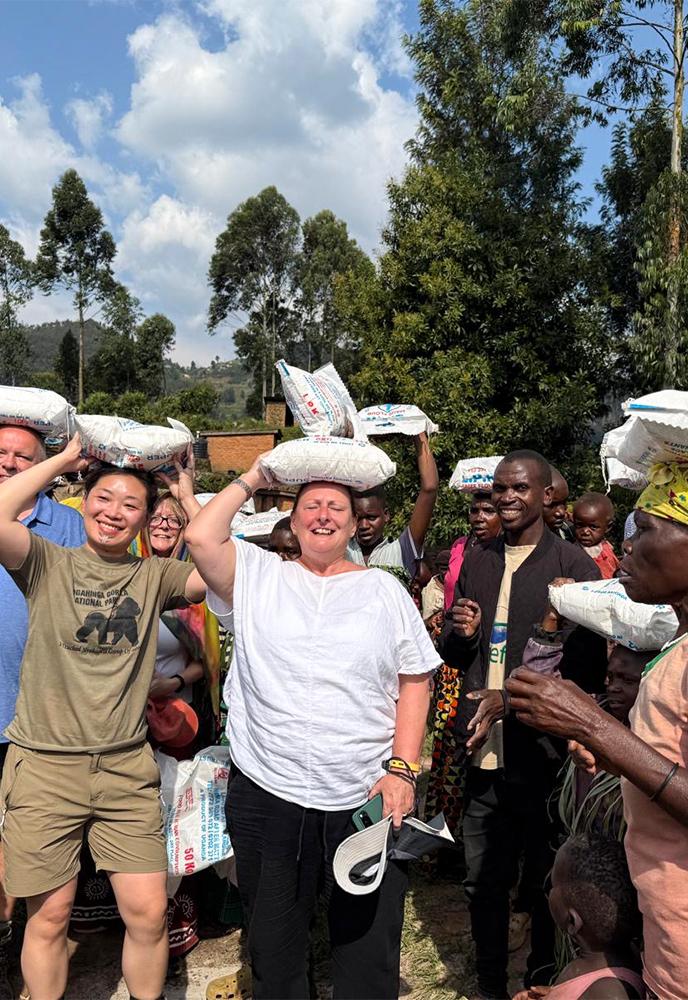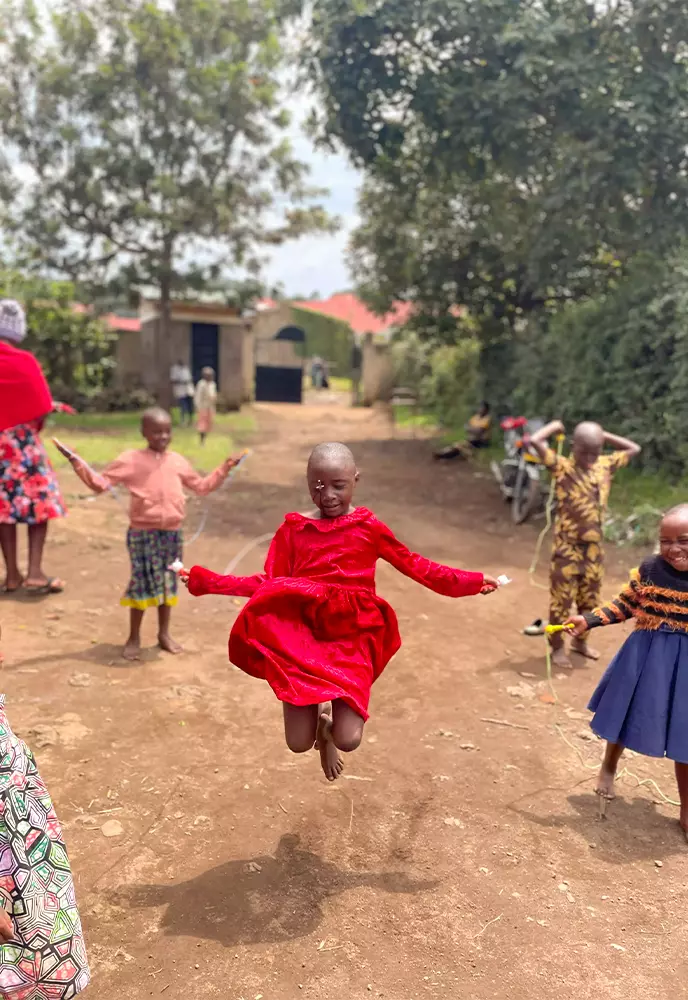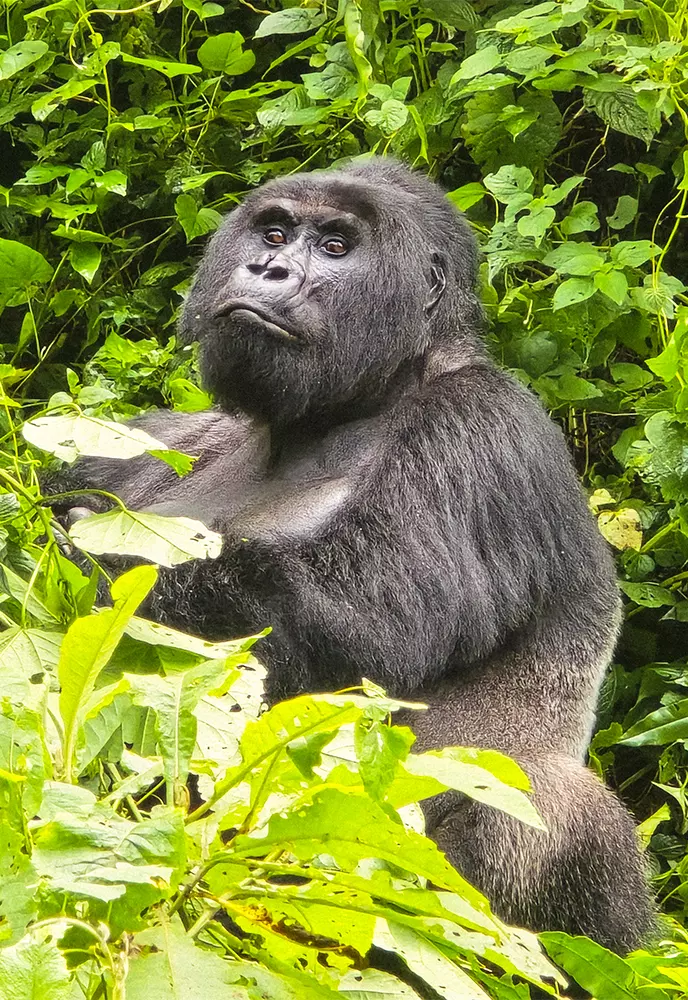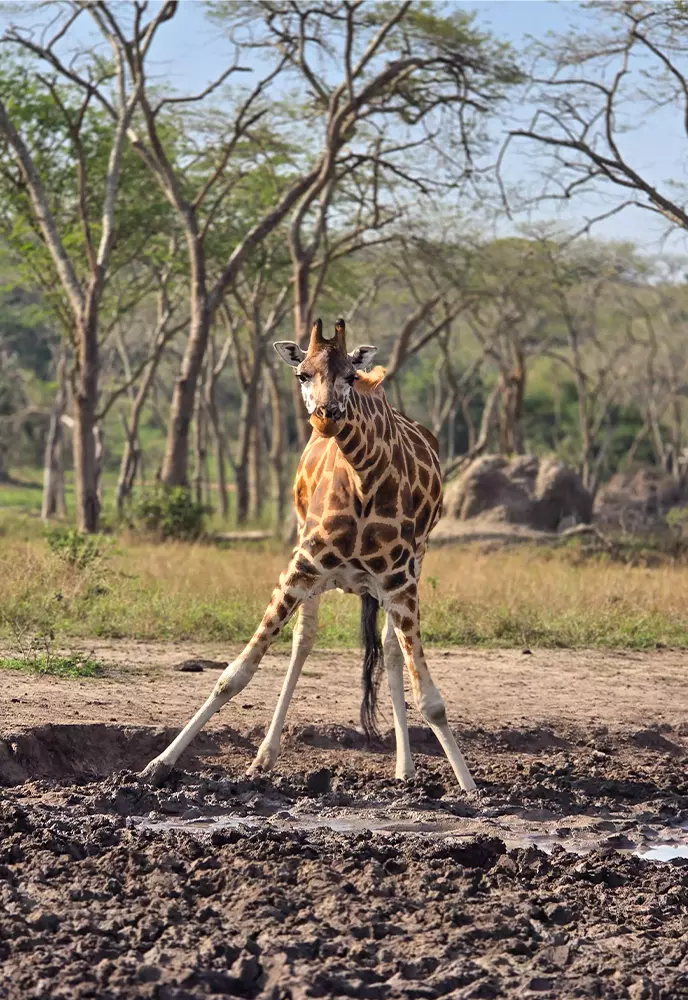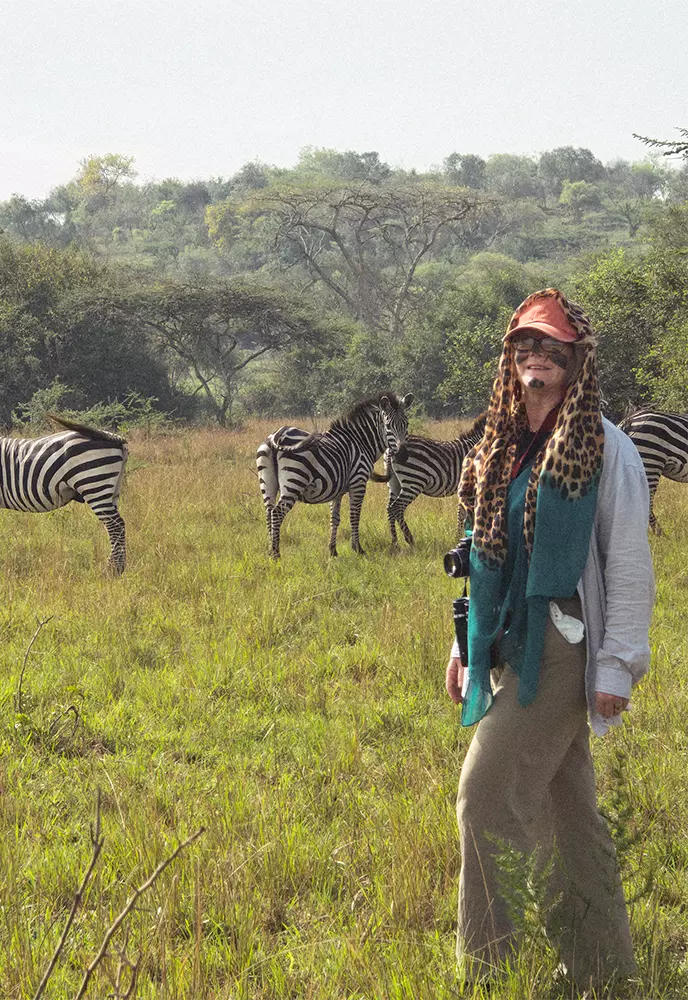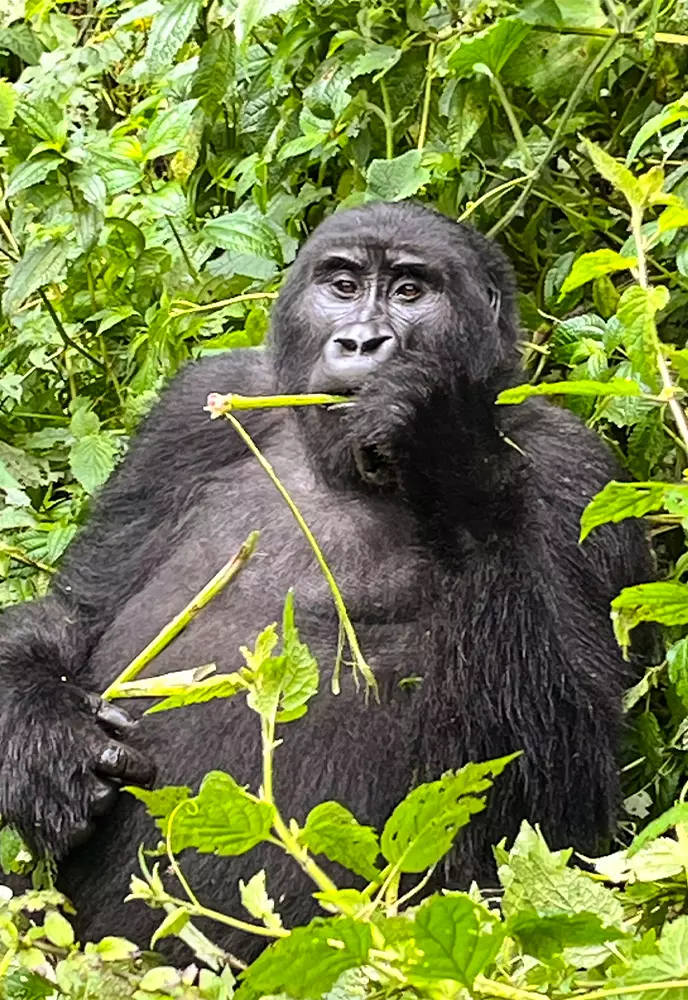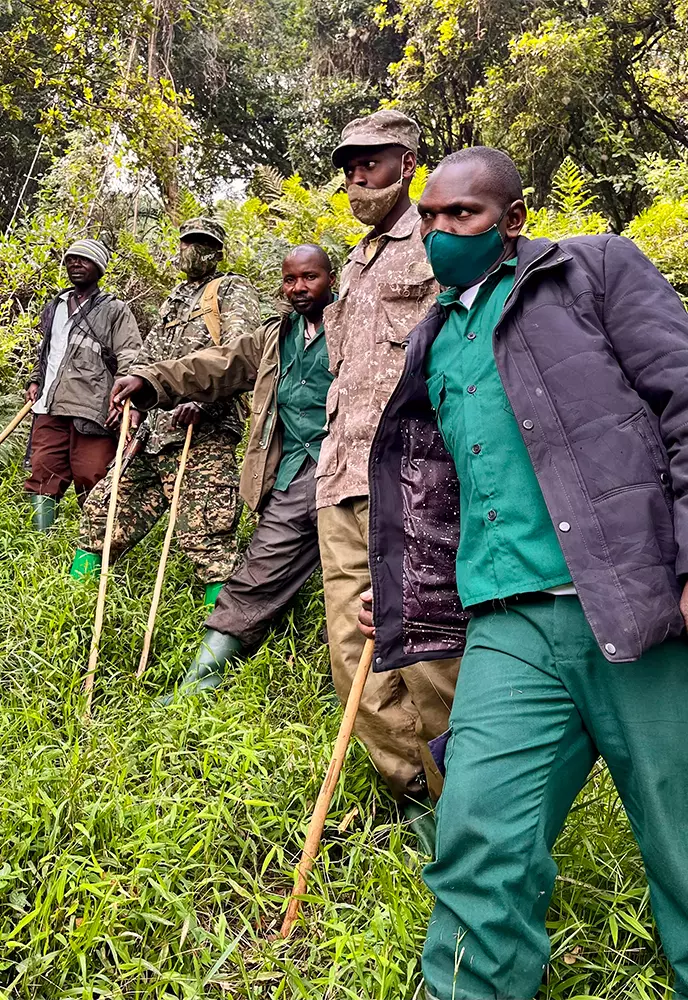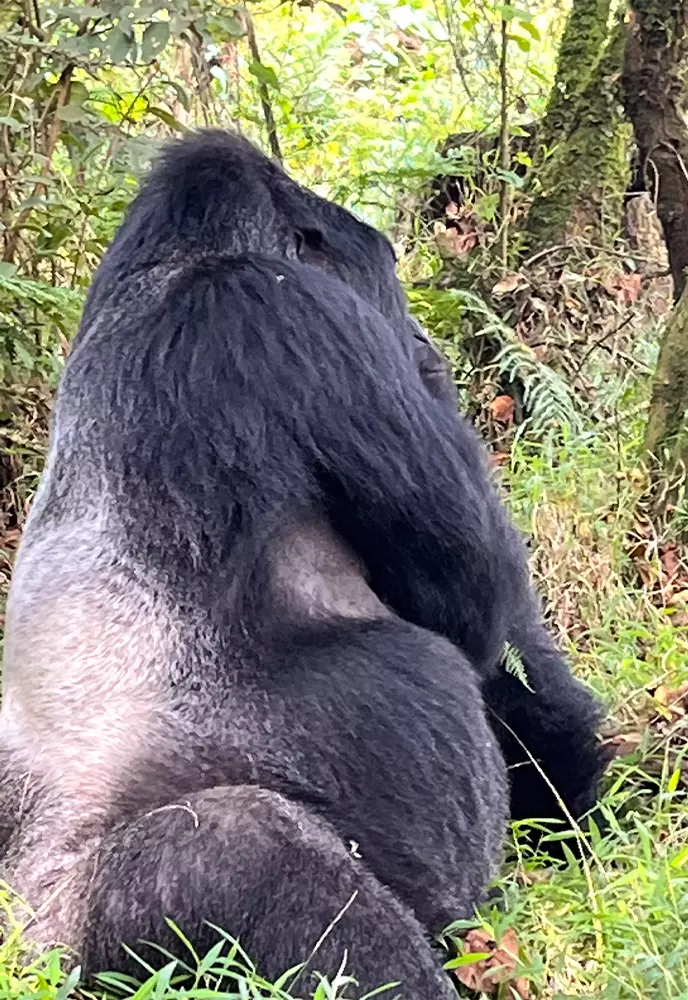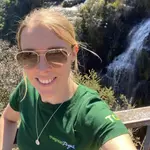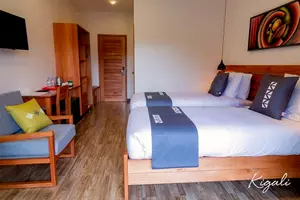

The Great Gorilla Project
Enjoy witnessing the stunning Mountain Gorillas in their natural habitat on this gorilla conservation project!
Speak To A Travel Expert
Activities
On this gorilla project, you will engage in a wide variety of activities within the local communities, supporting areas of mountain gorilla conservation in and around the national parks. You will also take part in two breath-taking treks to see the beautiful endangered mountain gorillas in their natural habitat.

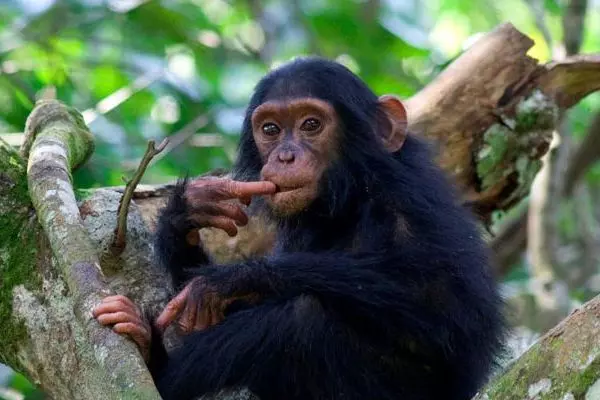
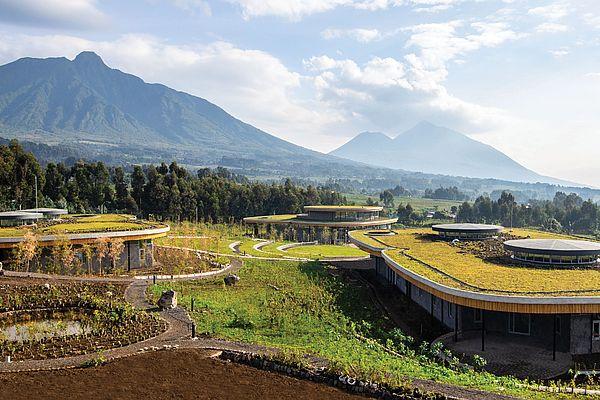
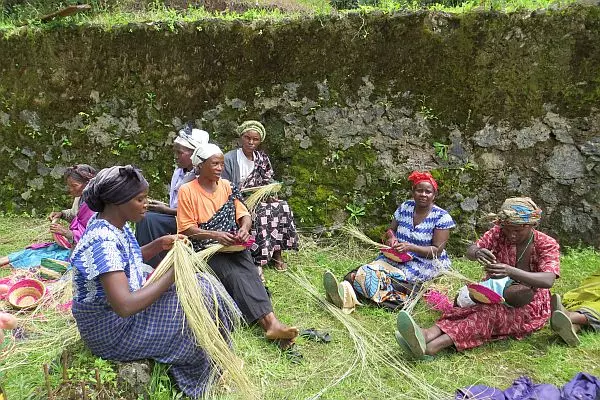
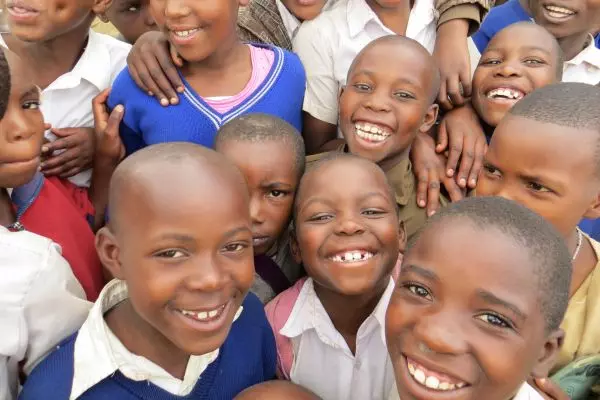
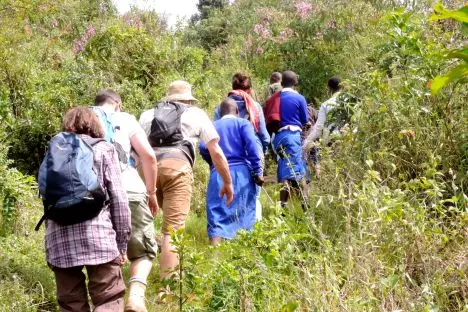
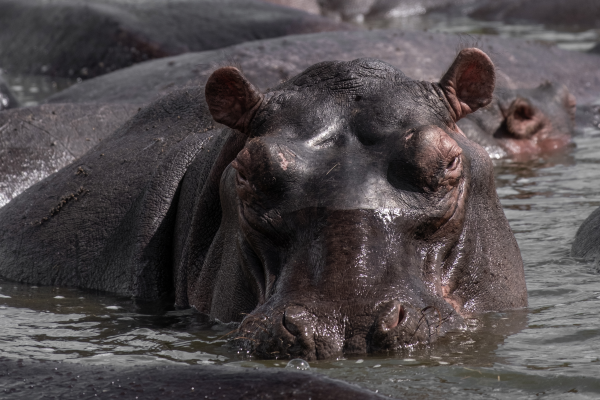
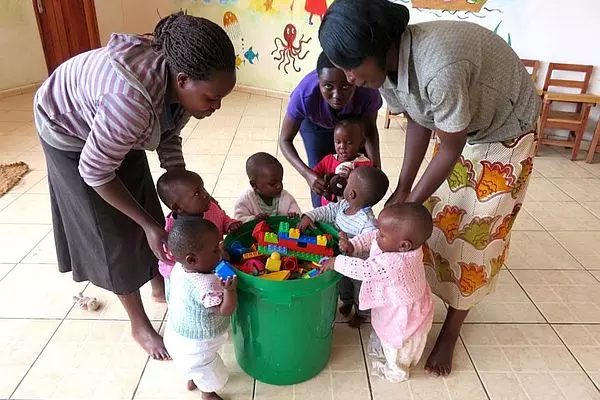
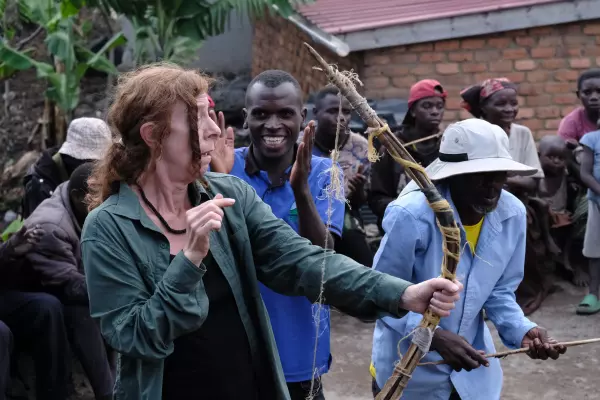
Itinerary
Please note, itineraries are subject to change and what follows is simply a rough guideline. All trips, however, will include two gorilla treks, one chimpanzee trek and work with the local communities.
Durations & Prices
Accommodation
Accommodation
On the first night, you will be staying at a lovely hotel situated near Kigali International Airport. The rooms here are spacious and overlook the beautiful hotel gardens. At Lake Mutanda, and in Kisoro, where you will spend most of your time on the project, the rooms are basic yet comfortable, and there is a bar/lounge area where you can make use of the free Wi-Fi. Next, you will stay in Lake Mburo National Park, where you can enjoy spectacular views from your beautiful cottage. The lodge features an on-site pool, stunning fire pit, and bar. In Kalinzu Forest, you will stay at an eco-friendly, family-run hotel with large rooms and modern amenities. At Lake Bunyonyi, your cottage will offer breathtaking lake views, and you’ll find a lake-view bar and restaurant on-site.
All rooms have ensuite bathrooms and are allocated on a twin-share, same-sex basis, although double rooms are available for couples. For more privacy, it is also possible to upgrade to a single room for an additional fee of $264.
Meals & Beverages
You’ll be well-fuelled for your adventure with three hearty meals provided each day. At most locations, a full menu will be available, though some may have a more limited selection. We can cater to vegetarian, vegan, and other dietary needs; please just let us know in advance. Drinks, including alcoholic beverages, are not included but can always be purchased at any of your accommodations along the way, each of which has a bar and lounge. When heading out on gorilla treks, you’ll be provided with fresh water and a packed lunch to keep you going on the trail!
Project Details
When is the best time to volunteer?
The most popular months to go gorilla trekking in Uganda are from May to September and December to February, as whilst it is warm throughout the year with average temperatures of 25-28°C (77-82°F), these are the driest months and so offer the best conditions for trekking.
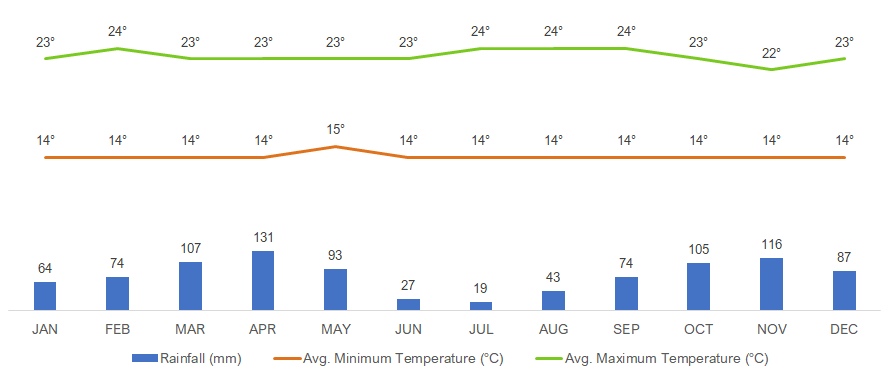
We offer select group start dates during these months but can also offer private trips for groups of two or more throughout the year, except for in July and August as the schools are closed for holidays.
Getting There
You will need to arrive into Kigali International Airport (KGL) on the start date of your project, where you will be met by a project representative and transferred to Hotel Chez Lando in Kigali for your first night's accommodation. Arriving before 6pm is preferred as there is a welcome dinner at approximately 7pm, but if you have a flight arriving later, a transfer can still be arranged.
On the final day of the project, you are transferred back to Kigali in the afternoon and so will need to book a flight that departs Kigali International Airport after 7pm. This is because you may not get back to Kigali until 4pm so this will ensure you have enough time and will not miss your flight. You can also book another night at Hotel Chez Lando and fly the next day if there are better flight options but this will be at an additional cost.
Visa Requirements
Most nationalities will require a tourist visa to enter Rwanda and Uganda. It may be possible to obtain a visa on arrival, but if not, we recommend obtaining an East Africa Visa as this allows you to travel between Uganda and Rwanda, and means you only have to apply for 1 visa. Tourist visas for Rwanda can be applied for online at https://irembo.gov.rw/user/citizen/service/dgie/request_a_visa, and tourist visas for Uganda can be applied for online at https://visas.immigration.go.ug/.
Fitness & Skills
This project does not involve much in the way of physical labour but is heavily based around trekking on the gorilla tours - usually in fairly humid conditions. Therefore, all volunteers should have high enough levels of fitness to be able to partake in regular treks. No specific skills or experience are required, just commitment to the project and its aims. You must be prepared to work alongside other members of the team and to bring an upbeat, positive attitude to the endeavour as a whole.
Vaccinations
All visitors to Uganda are required to have a yellow fever vaccination and must present the certificate upon arrival. Any other vaccinations will depend on your medical history, so we recommend speaking with your GP/Doctor regarding your own vaccination requirements.
Videos
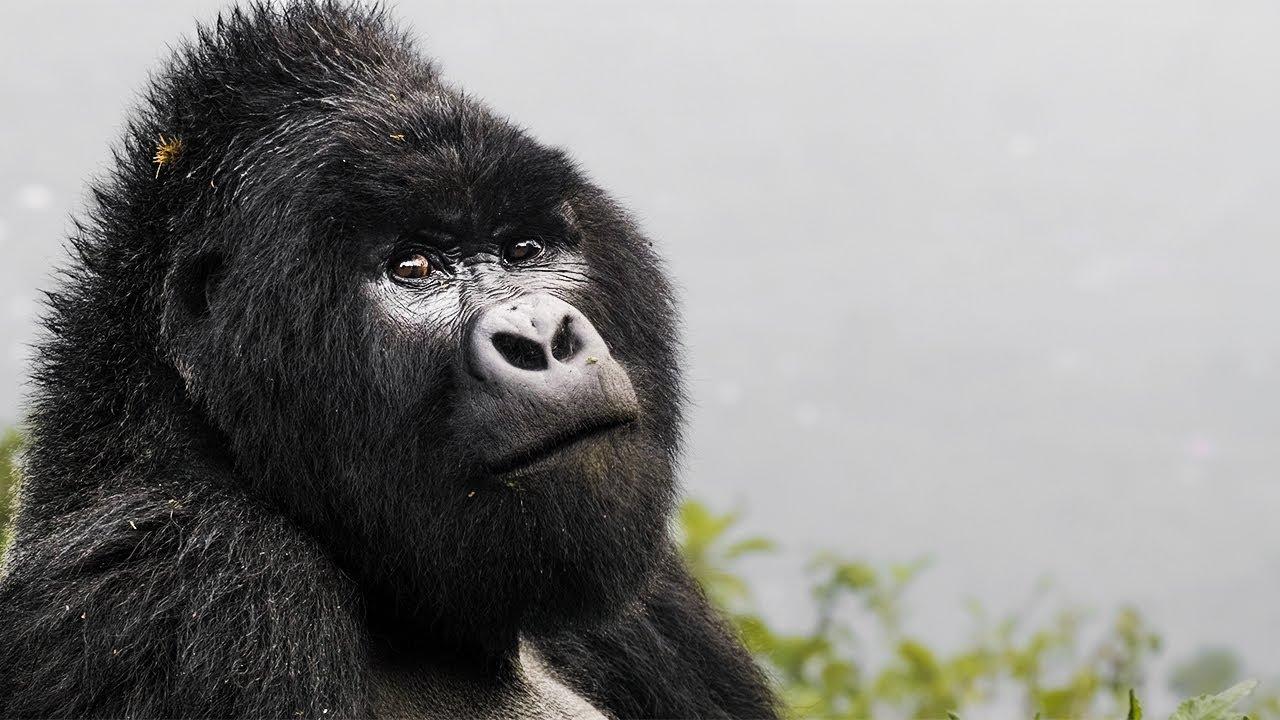
Discover The Great Gorilla Project
See how you could spend your time as a volunteer on The Great Gorilla Project. This project combines incredible wildlife experiences with community impact as you adventure through stunning national parks, visit indigenous communities and schools, go on a game drive and a boat cruise, and of course, join the highly anticipated gorilla and chimpanzee treks.
Gallery
News & Stories
REVIEW | Dec 2025
From silverbacks to schoolyards, Sharon’s Uganda volunteer journey had surprises around every corner. Read her incredible review covering travelling solo, making friends, and experiencing wildlife magic every day!

Volunteer Snaps from Lake Mburo Bush Walk
UPDATE | Aug 2025
While the mountain gorillas and chimpanzees steal the show on this project, there are other wildlife moments that capture the hearts of volunteers. Just take a look at the photos sent to us by recent volunteers of animals they encountered on a bush walk at Lake Mburo National Park!
NEWS | Jul 2025
On World Chimpanzee Day 2025, we honour the species that taught us so much about ourselves. Learn how you can support their future before it’s too late!
Reviews
I’ve participated in annual eco-volunteering trips for years, often traveling to remote areas far from my home in New York City. Without a doubt, this has been the best experience I’ve ever had. On previous trips, I often felt homesick toward the end. This time, however, I felt instantly at home as I connected with the local community, so much so that I could truly imagine living here. I’ve captured over a thousand photos and videos, yet none of them come close to conveying the breathtaking beauty of this country: its majestic mountains, rich biodiversity, extraordinary wildlife, and, above all, the warmth and hospitality of its people. This program, facilitated by the local NGO MCDO, strikes a remarkable balance between structured activities and meaningful contributions rooted in the local community. It goes far beyond typical tourism, rather than checking off lists or staying in fancy hotels, the experience is about giving back and immersing yourself in how real locals live. That’s exactly what this program achieves. It saddens me that October and November are considered the slow season due to the wet climate, when trekking to see mountain gorillas can be risky because of landslides and flooding. Yet, this initiative... I’ve participated in annual eco-volunteering trips for years, often traveling to remote areas far from my home in New York City. Without a doubt, this has been the best experience I’ve ever had. On previous trips, I often felt homesick toward the end. This time, however, I felt instantly at home as I connected with the local community, so much so that I could truly imagine living here. I’ve captured over a thousand photos and videos, yet none of them come close to conveying the breathtaking beauty of this country: its majestic mountains, rich biodiversity, extraordinary wildlife, and, above all, the warmth and hospitality of its people. This program, facilitated by the local NGO MCDO, strikes a remarkable balance between structured activities and meaningful contributions rooted in the local community. It goes far beyond typical tourism, rather than checking off lists or staying in fancy hotels, the experience is about giving back and immersing yourself in how real locals live. That’s exactly what this program achieves. It saddens me that October and November are considered the slow season due to the wet climate, when trekking to see mountain gorillas can be risky because of landslides and flooding. Yet, this initiative deserves to thrive year-round. Tourism here not only strengthens the local economy but also plays a critical role in the conservation of mountain gorillas. I am deeply committed to spreading awareness about this project and serving as an ambassador for its mission. This journey has been life-changing, and I cannot recommend it highly enough. (Show More)
I travel for wildlife experiences and have been doing so for 20+ years. I only just learned about "The Great Projects" and joined The Great Gorilla Project. I can honestly say without question that this trip was one of the best I have ever been on. Our guide, Peter, was second to none. He was super knowledgeable about all of the wildlife and was flexible and very well organised. The volunteering we did felt meaningful and having the opportunity to trek with the gorillas twice, was magical. The accommodation (clean and comfy) and food (vegetarian) were great. There was something new and exciting every day with enough downtime to relax when needed. The photo opportunities were phenomenal. Thank you "The Great Projects", I'm already looking at my next trip!
The whole trip was well put together with a good mix of wildlife experiences and interaction with the community. Our guide Denis was exceptional and was instrumental in making the trip such a success. If I am to be constructive I would add the following comments: Although listed as a volunteering opportunity ie to contribute to the community through personal labour, the volunteering aspect is very limited and in some cases, the community were facilitating the volunteering at the cost of their time and effort. For example the tree planting was a token gesture and required 3 of the facilities staff member to be present to assist the two of us to plant 5 trees - ie we were more of a burden than a help! The main 'contribution' is really having a captive donation audience! ie at the various visits to schools etc there is a feeling of obligation to make a financial donation. This is not unreasonable and I was happy to do so but one needs to factor in bringing enough cash to make all these donations. For example at the gorilla trekking - the porters ( who you really do need) need $20 plus a tip... The whole trip was well put together with a good mix of wildlife experiences and interaction with the community. Our guide Denis was exceptional and was instrumental in making the trip such a success. If I am to be constructive I would add the following comments: Although listed as a volunteering opportunity ie to contribute to the community through personal labour, the volunteering aspect is very limited and in some cases, the community were facilitating the volunteering at the cost of their time and effort. For example the tree planting was a token gesture and required 3 of the facilities staff member to be present to assist the two of us to plant 5 trees - ie we were more of a burden than a help! The main 'contribution' is really having a captive donation audience! ie at the various visits to schools etc there is a feeling of obligation to make a financial donation. This is not unreasonable and I was happy to do so but one needs to factor in bringing enough cash to make all these donations. For example at the gorilla trekking - the porters ( who you really do need) need $20 plus a tip of around $5-10 ( the porters are not employed by the park and so this is their only income. There is only one trek per day so if you don't hire them and tip them , they make no money that day )then the trackers and there are usually 3 or 4 need a tip to share - around $15, then the guide another $10 and the security guy who has a gun to scare any aggressive encounters with large mammal - another $10 and then there is usually a traditional welcome dance by the local community $10. It is absolutely appropriate to tip as ensuring the local community are benefitting from the national parks is how the government ensure that these people don't return to taking game meat as they previously would have done ie they see the parks as a valuable asset that they can benefit from and so are also keen to preserve. The trip information says that a contribution from the price paid goes to the various projects but no information is given as to the amount of the contributions. It seems that the Lake residence near Kisoro where the tree planting takes place is owned by the same gentleman who owns the Golden Monkey hotel in Kisoro where we stayed for the bulk of the time. All in all thought this was definitely a fantastic trip. Having two very different gorilla treks was brilliant and the two trips are totally different from one another. I absolutely do recommend it. (Show More)
What's Included
- Two gorilla-trekking permits
- One chimpanzee habituation experience permit
- Two game drives in Lake Mburo National Park
- A boat trip on Lake Mburo
- A visit to the Ellen DeGeneres Dian Fossey Museum
- All accommodation and meals
- Transfers to and from the airport
- Full orientation and support from the project managers
- A monetary contribution to the Mgahinga Community Development Organisation and the Potters Village Child Crisis Centre
What's Not Included
- Flights
- Visas
- All beverages





































